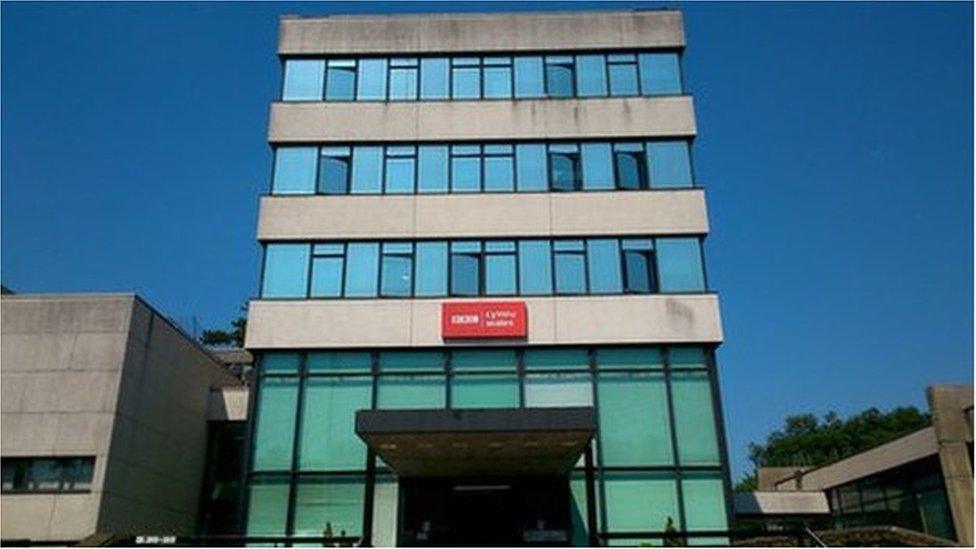BBC and S4C have partnership that works, Rhodri Talfan Davies says
- Published
We have to share resources to meet audience needs, says Rhodri Talfan Davies
The director of BBC Wales has said the organisation's relationship with Welsh language broadcaster S4C will be "simpler" in future.
Rhodri Talfan Davies said existing governance agreements between the broadcasters were "complicated".
But he told an assembly inquiry into S4C that at the programme-making level it was "a partnership that works".
AMs were also told of plans for the BBC to move its staff in Carmarthen to S4C's planned new headquarters there.
Since 2013 the majority of S4C's funding has come from the BBC licence fee, currently £74.5m a year.
Mr Davies told the inquiry about a new agreement with S4C which will be agreed over the next few months, following the introduction of a new BBC charter and boardroom structure.
He said: "I think it will be a lighter touch than we have seen to date, and I think that reflects the maturity of the relationship that is now established between the two parties."
Mr Davies said an improved relationship would mean there would be no need for a BBC board member to sit on S4C's governing body in future.
In terms of the deal by which BBC Wales makes at least 10 hours of programmes a week for S4C, Mr Davies said it was "a partnership that works", and urged caution over tampering with it.
The BBC has frozen its funding for S4C until 2022, following a cash-flat licence fee settlement.
S4C also receives around £6.8m from the UK government and raises some money from advertising.
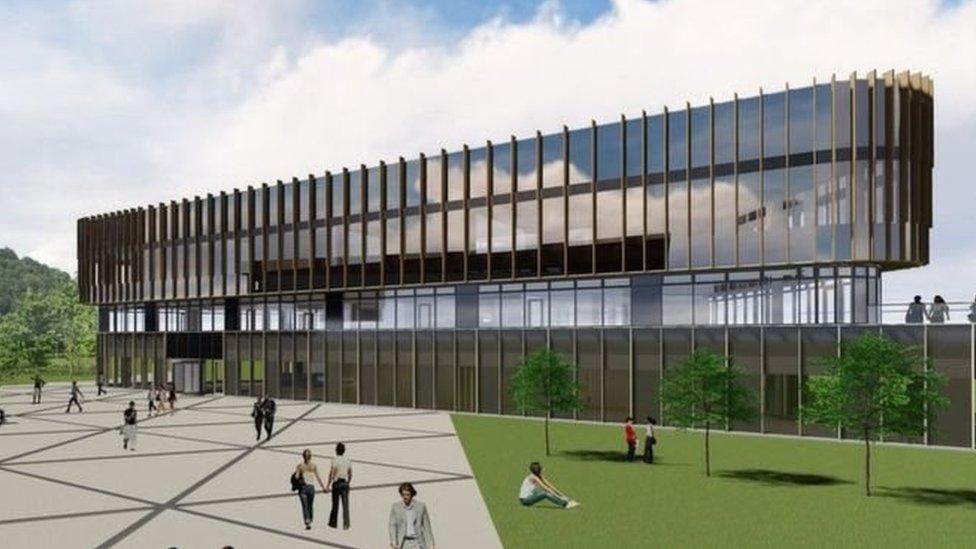
S4C plans to move its headquarters from Cardiff to Yr Egin, a new "creative hub" in Carmarthen
Mr Davies said the financial situation was "challenging" for both broadcasters, and reaching all of their potential audiences would require some difficult decisions.
He said: "Whatever the financial settlement for S4C in future, whatever the BBC's settlement, there are direct questions to be asked about prioritisation, and deciding on what kind of programming, and on which platforms, we should be focussing.
"We don't have the resources to do everything for everyone on every platform, and that's the challenge facing every public service broadcaster at the moment."
"We are about to announce two very major co-productions with S4C, and they are exactly the type of projects that can not only be enormously impactful in Wales but potentially reach a much bigger audience in the way that [crime drama] Hinterland did."
AMs were also told of plans for the BBC to move its staff in Carmarthen to S4C's planned new headquarters there.
Sian Gwynedd, head of content production for BBC Wales said: "We have around 15 staff based in our BBC office in Carmarthen, so we are looking at the feasibility, both financially and operationally, of moving those staff to Yr Egin in Carmarthenshire," she said.
"Those negotiations are continuing, and we are hoping to come to a decision in the next few months."
Mr Davies added: "We want to move - we just need to make sure the money works."
Discussions were also taking place about basing some S4C technical staff at the new BBC Wales headquarters being built in the centre of Cardiff, he said.
- Published20 March 2017
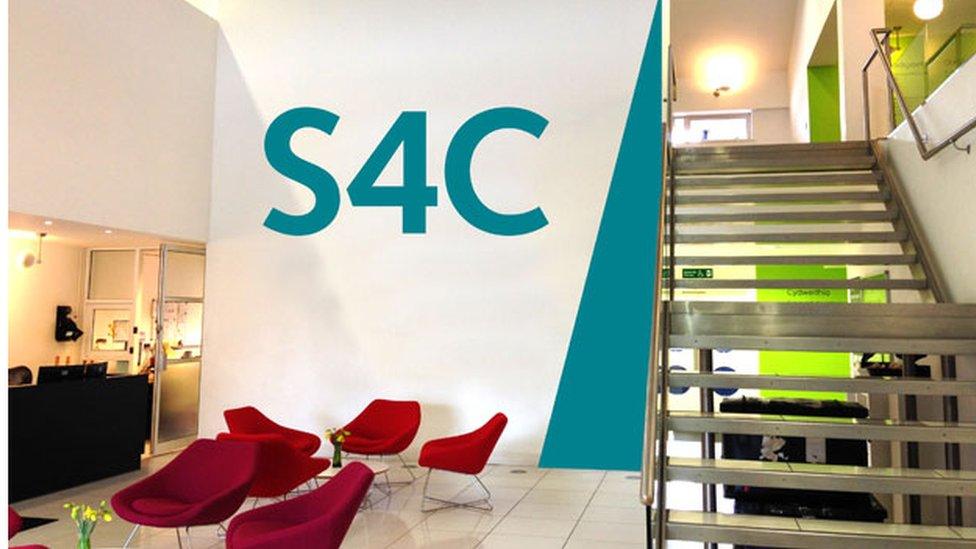
- Published13 March 2017

- Published5 April 2017
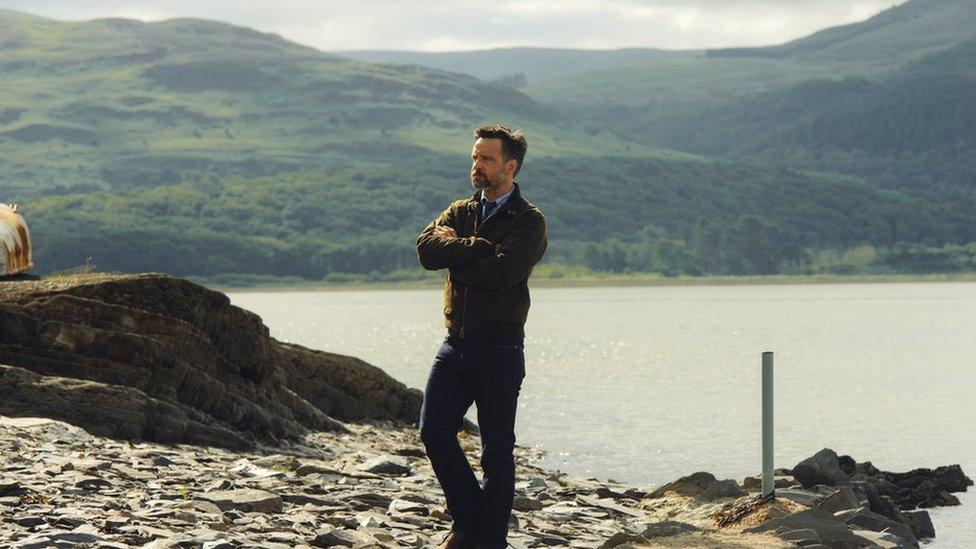
- Published29 March 2017
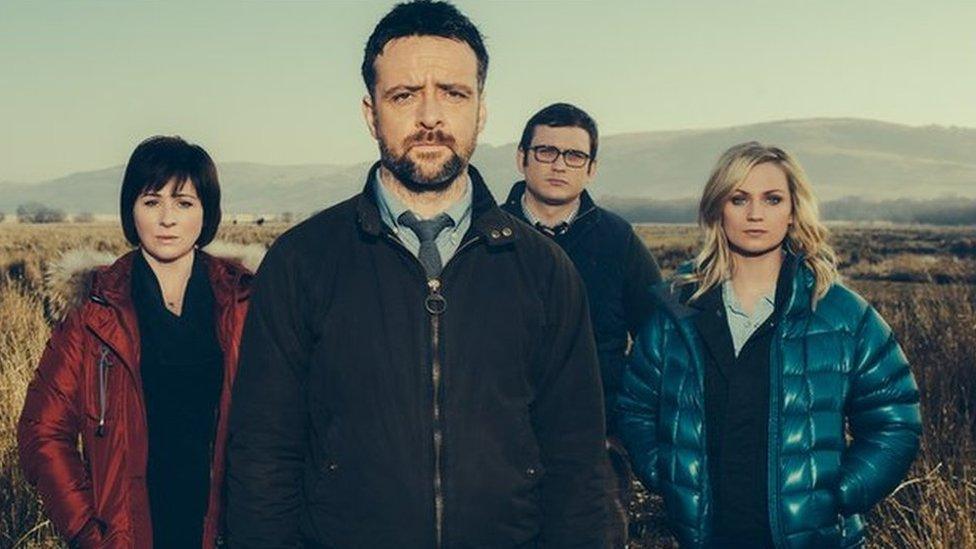
- Published23 March 2017
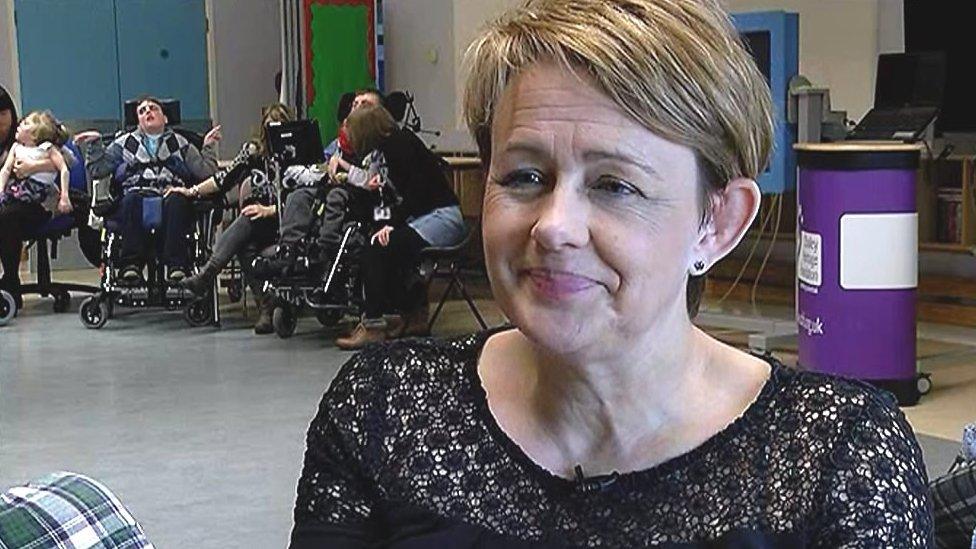
- Published15 September 2016
